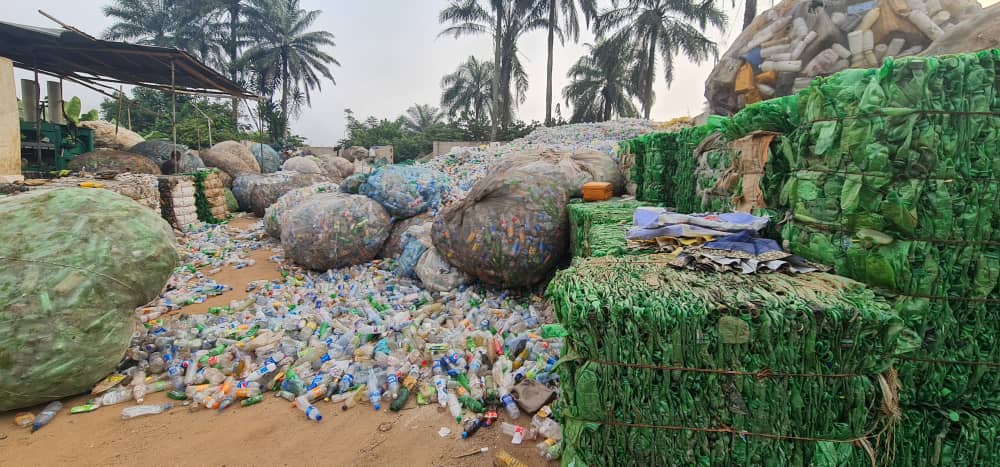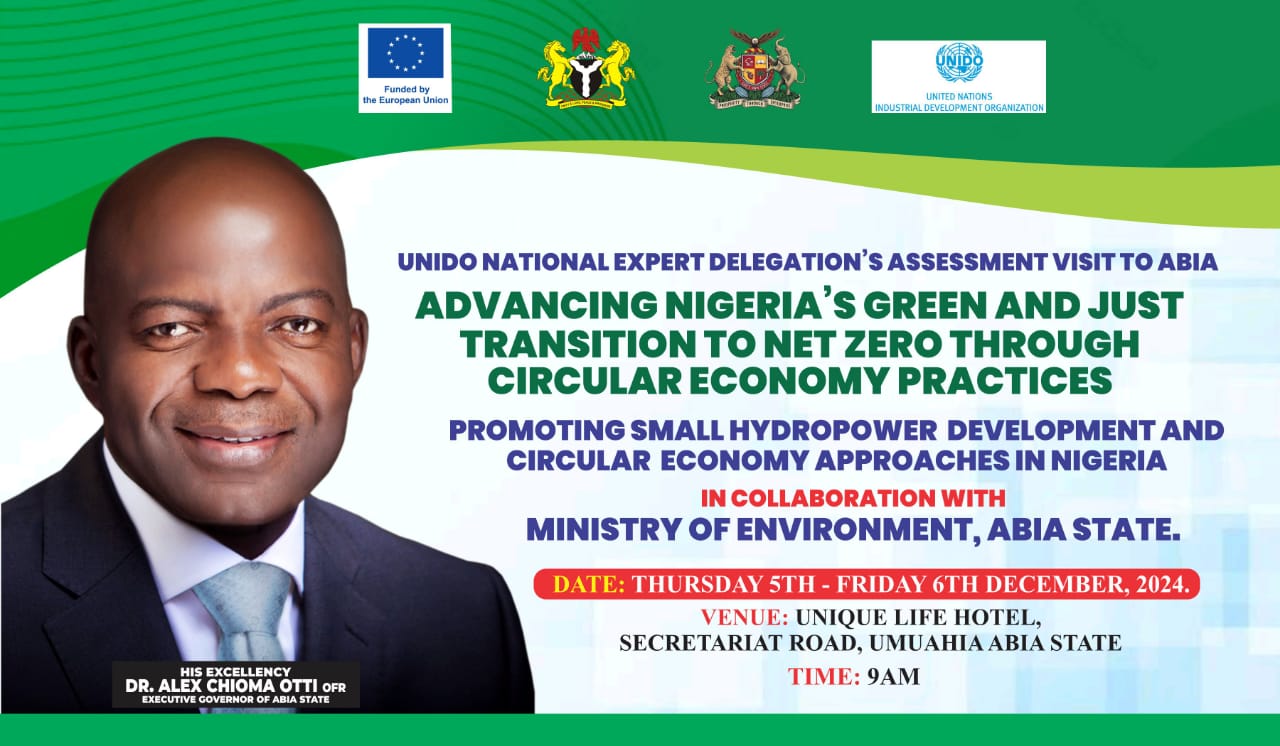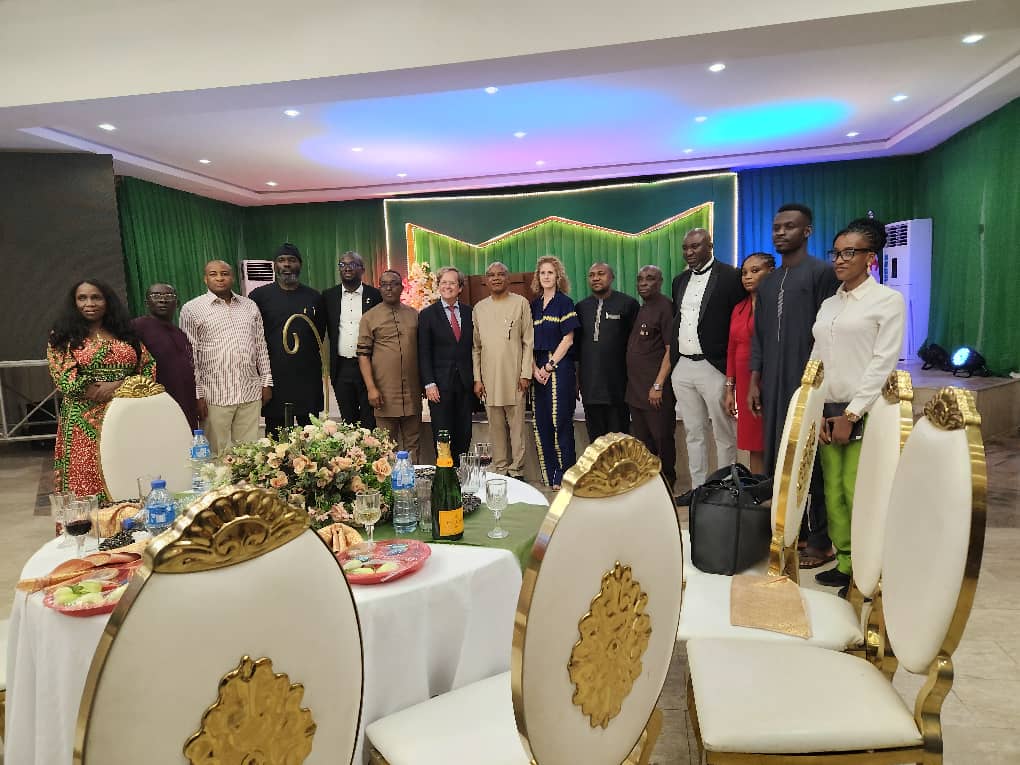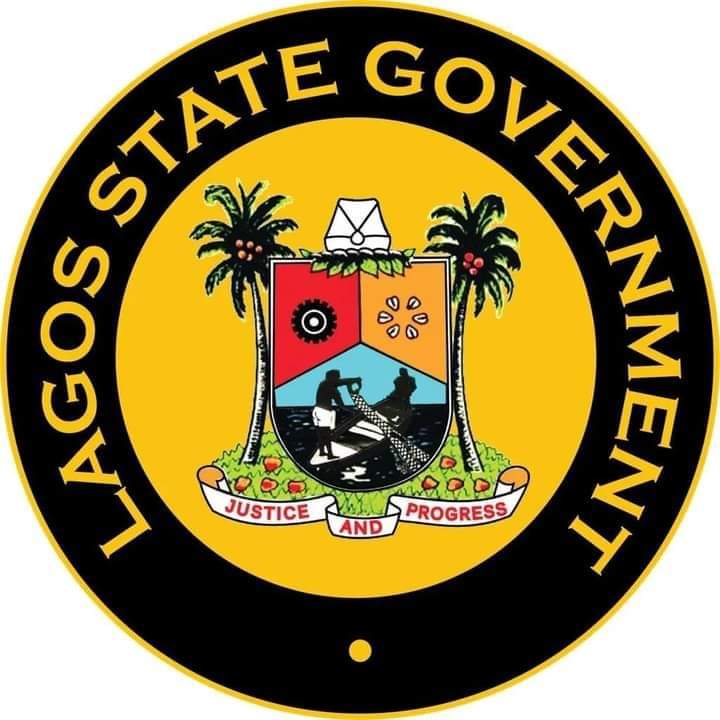Abia State leads the charge in Nigeria’s green and just transition to net zero. In the two days’ assessment study at Unique Life Hotel. The UNIDO national expert delegation assessment visit to Abia State marked a significant milestone in Nigeria’s journey towards a green and just transition to net zero. The visit provided a platform for stakeholders to share knowledge, experiences, review policies, challenges and best practices. The project is funded by the European Union (EU) and implemented by the United Nations Industrial Development Organization (UNIDO) in cooperation with the relevant federal and participating state ministries. The 36 months project aims to improve management of used off-grid energy equipment and plastics through circular economy practices for mitigation of pollution and Greenhouse Gas (GHG) emissions, thereby minimizing negative impact to environment, society, and human health. The importance of the project includes: to support the initiatives of Abia state government to combat pollution and climate change and to advance with a green and just transition for net zero emission, through promotion of circular economy practices. The project will create jobs in the management of off-grid energy equipment, e-waste and plastics.
Project Output:
- – Strengthen policy and regulatory framework for enabling circular economy principles and practices, especially for used energy equipment and its implementation capacity.
- – Capacity building of enabling institutions: Strengthen enabling institutions at the Federal and States level.
- – Develop business models of circular economy practices, including recycling and reusing of used energy equipment such as e-waste, used batteries, and plastics, for the private sector in the value chains, especially those led/owned by women.
The two days assessment visit highlighted Abia State’s commitment to embracing circular economy practices, renewable energy and sustainable development. The team of experts met with public institutions and Abia state ministries and agencies in charge of development and implementation of policies. Present were the state ministry of environment, the Abia State Environmental Protection Agency (ASEPA), the ministry of power and public utilities, the Abia Innovation and Policy agency, the Ministry of Agriculture. Policy personnel from these agencies collaborated with the policy expert from UNIDO to review existing state policies, and a new chart for progress was initiated. Expert group 2 from UNIDO met and interviewed private sector practitioners in the off-grid energy sector, E-waste recyclers and aggregators, waste battery collectors and off-grid energy components recyclers. There was a field visit to Inner galaxy and Starich recycling companies. The UNIDO team saw firsthand Abia state readiness for the project, which was demonstrated by the commitment of government officials and the academia, NGO’s and the private sector. The assessment visit demonstrated the need for a multi-stakeholder approach to addressing the challenges and opportunities of a green and just transition.
Abia became prominent in recent months as one of the states with stable power supply. As the Geometric power plant in Aba was commissioned and celebrated, the state government was mindful of the gaps to be filled in the energy sector. As one of the core states participating in the EU funded project, Abia has demonstrated commitment in circular economy practices. The honourable Commissioner of Environment Mr. Philemon Ogbonna in his keynote address buttresses Abia’s commitment to renewable energy, sustainable practices and circular economy. The ASEPA general manager, Mazi Ogbonnaya Okereke, mentioned the progress in waste management and the infrastructures in place to achieve sustainable waste management. In his presentation, Hon. Kachi Etolue, senior special adviser to the governor on energy, showed the energy mapping of the state, existing off-grid mini plants and the developing hydro power plant in the state. The UNIDO project lead, Mr. Oluyomi Banjo, in his presentation applauded the effort of the Abia state government and explained in detail the project output, deliverables, requirements and timeline. The Abia state government has launched several initiatives aimed at promoting sustainable production and consumption patterns.
These initiatives include:
- – Waste Management and Recycling: Abia State has established a sustainable waste management and recycling program, which aims to reduce waste sent to landfills. Practical steps taken include advocacy and sensitization programs by ASEPA, support to existing recycling companies and aggregators in the state to increase their capacity and investment in waste management logistics.
- – Renewable Energy Development, Abia State is investing in renewable energy sources such as solar and hydro power to reduce reliance on fossil fuel. The state is championing the energy to health initiatives where primary health centers are powered with solar energy.
- – Sustainable Agriculture: Abia State is promoting sustainable agriculture such as organic farming, use of organic fertilizer, and agroforestry to reduce environmental impact of agriculture.
- – Green Infrastructure Development: Through the establishment of parks and green spaces, the state is improving air quality.
Abia State’s participation in advancing Nigeria’s green and just transition to net zero through circular economy practices is a commendable effort. The lessons learned and recommendations from UNIDO national experts will be invaluable to the success of the project in the state. The project will inform policy decisions, guide green investments in the energy sector, and support the development of circular economy practices that promote sustainable development, reduce inequality and address climate change.
By: Cajetan Okeke





